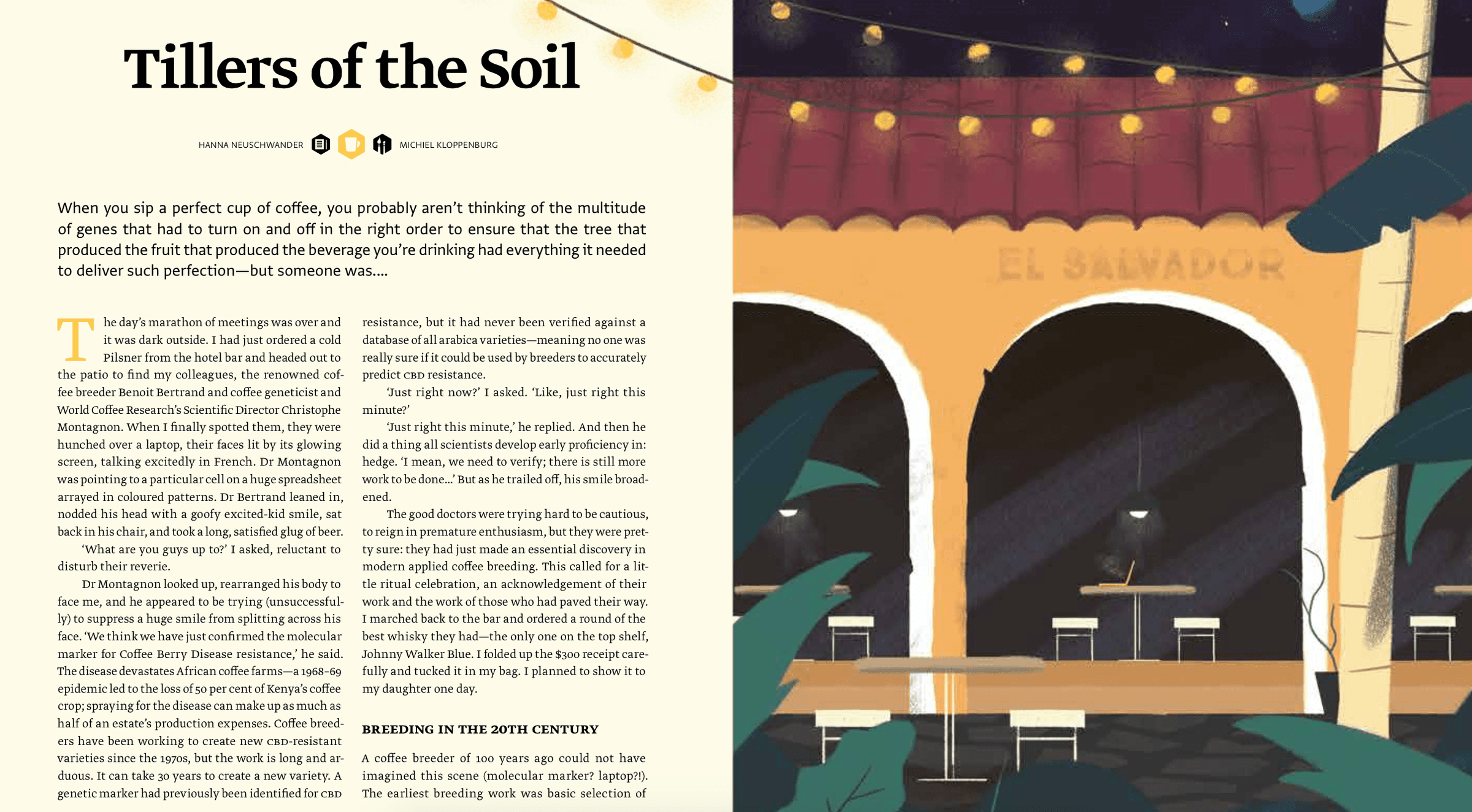Tillers of the soil
Modern genetics is helping coffee researchers respond to farmers’ needs
From Standart Magazine Issue 11:
...Can modern genetics help us respond to farmers’ needs more efficiently? That is the principle question today’s coffee researchers are asking, including Dr. Bertrand and Dr. Montagnon at World Coffee Research. Ideally, the time it takes breeders to identify desirable traits and then work those traits into new varieties would be far shorter than 70 years or 30 years. It would ideally be no more than 10. Given the many challenges coffee producers face, even that feels like a difficult compromise.
Is it possible? First, you must identify the traits you’re looking for—much trickier than you might think with complex characteristics like cup quality or drought tolerance—and then develop a way to rapidly and cheaply determine if those traits are present in a large number of plants without having to wait for the three to five years it takes for the trees to mature.
[...] Molecular breeding holds terrific potential, and many researchers around the world are chipping away at the edifice of arabica genetics. But it’s far from a cure-all: will it give the right bang for the buck? To justify the cost of marker-assisted selection, you need good markers that accurately predict desirable traits more cheaply and efficiently than existing methods. In short, coffee breeders will use marker-assisted selection and quantitative breeding if it makes sense to do so, meaning if it delivers a high enough return on in-vestment, measured as genetic progress against time saved and money invested. Truthfully, we don’t know how much sense it will make for coffee right now—the work is only just beginning.

Many thanks to Standart Magazine for allowing us to share the full text of this article with our readers.